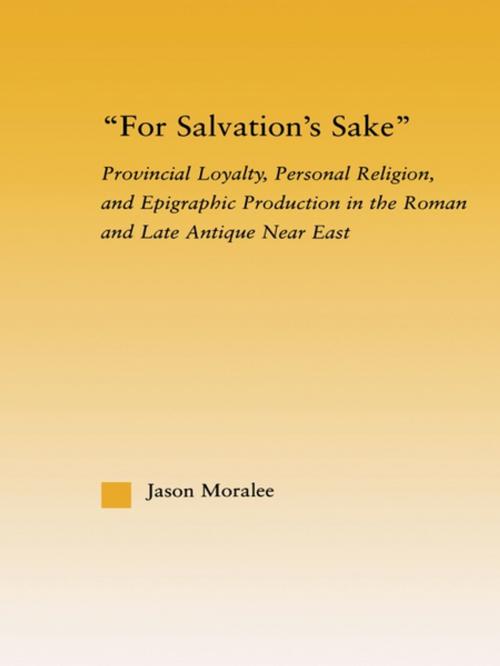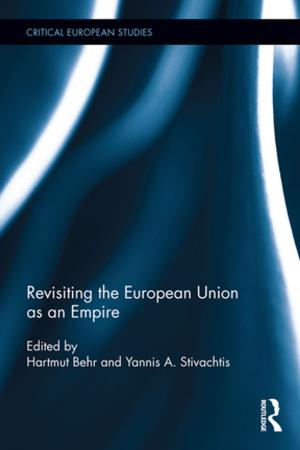For Salvation's Sake
Provincial Loyalty, Personal Religion, and Epigraphic Production in the Roman and Late Antique Near East
Nonfiction, History, Ancient History, Rome, Religion & Spirituality, Christianity, Church, Church History| Author: | Jason Moralee | ISBN: | 9781135885588 |
| Publisher: | Taylor and Francis | Publication: | March 1, 2004 |
| Imprint: | Routledge | Language: | English |
| Author: | Jason Moralee |
| ISBN: | 9781135885588 |
| Publisher: | Taylor and Francis |
| Publication: | March 1, 2004 |
| Imprint: | Routledge |
| Language: | English |
This book breaks new ground in the study of cultural unity in the Near East from pre-Roman to early Islamic times (first century BC - eighth century AD). Based on a thorough study of nearly 400 Greek and Latin inscriptions from Syria, Lebanon, Jordan and Israel, this book shows how the formula 'for salvation's sake' (hyper soterias/pro salute) was fundamental to the political, social and religious lives of hundreds of civic and military elites in the Near East. Initially an expression of ancient indigenous religion, this formula expressed loyalty to the central authority at Rome, while profiling social status and piety. With the arrival of Christianity and Islam, the formula lost its political importance, but persisted in its social and religious applications among Christian and Jewish communities in Late Antiquity. Presenting a new body of evidence, Jason Moralee provides a fresh look at how Romans used the inscriptions to secure the loyalty of their subjects for centuries. This analysis of material culture through several periods redefines notions of political loyalty in the Middle East from antiquity through the Middle Ages, raising new questions about life in the Roman provinces.
This book breaks new ground in the study of cultural unity in the Near East from pre-Roman to early Islamic times (first century BC - eighth century AD). Based on a thorough study of nearly 400 Greek and Latin inscriptions from Syria, Lebanon, Jordan and Israel, this book shows how the formula 'for salvation's sake' (hyper soterias/pro salute) was fundamental to the political, social and religious lives of hundreds of civic and military elites in the Near East. Initially an expression of ancient indigenous religion, this formula expressed loyalty to the central authority at Rome, while profiling social status and piety. With the arrival of Christianity and Islam, the formula lost its political importance, but persisted in its social and religious applications among Christian and Jewish communities in Late Antiquity. Presenting a new body of evidence, Jason Moralee provides a fresh look at how Romans used the inscriptions to secure the loyalty of their subjects for centuries. This analysis of material culture through several periods redefines notions of political loyalty in the Middle East from antiquity through the Middle Ages, raising new questions about life in the Roman provinces.















